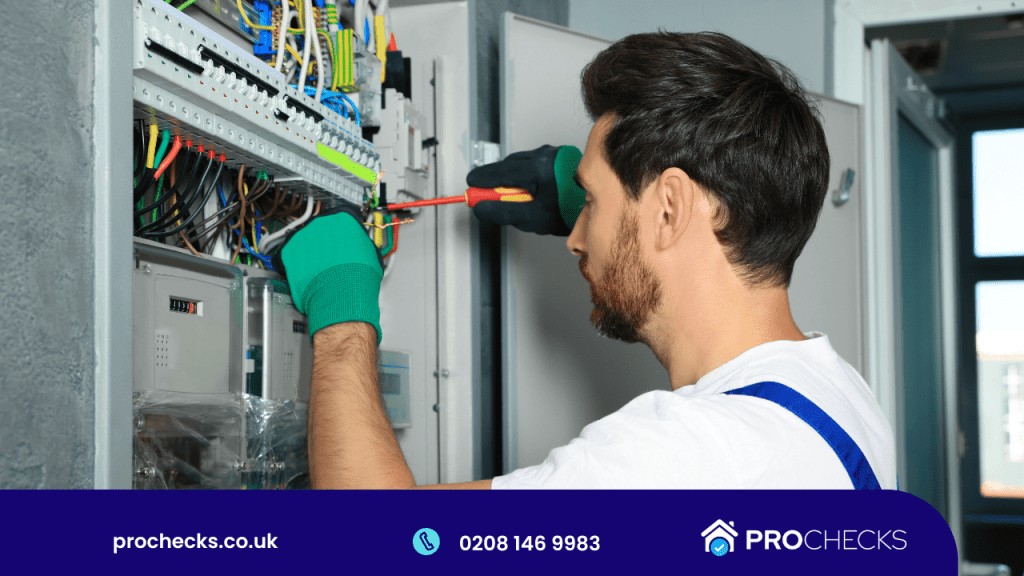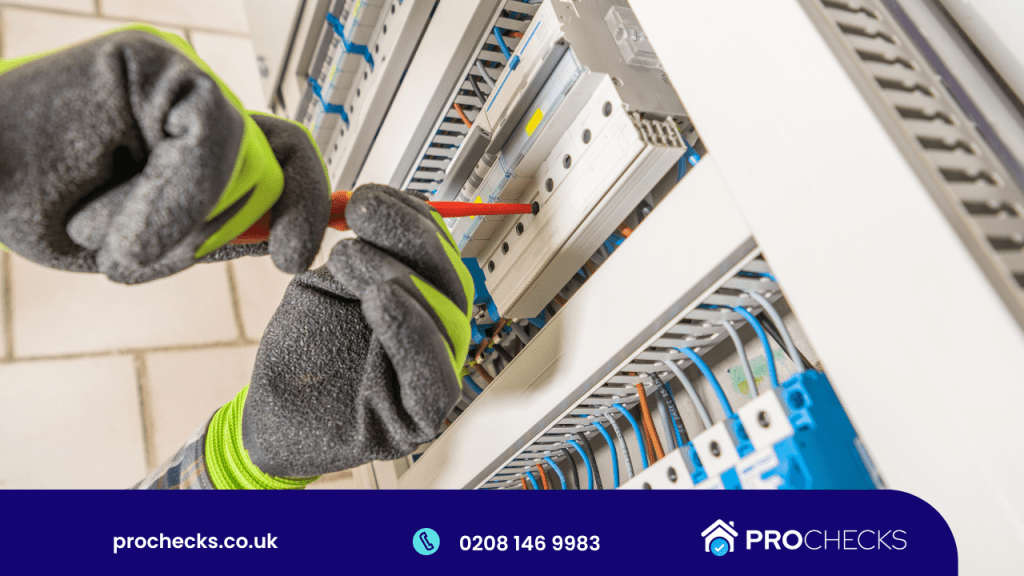In the United Kingdom, the installation of a new fuse box, or consumer unit, is not only a significant electrical upgrade but also a matter subject to stringent regulatory compliance. Under the UK’s electrical safety standards, specifically the Wiring Regulations, it is mandatory for such installations to be certified. This certification ensures that the installation has been executed by a qualified electrician and has passed rigorous safety tests to prevent any potential electrical hazards. Let’s understand Does a New Fuse Box Need a Certificate in Uk?
The process raises several pertinent questions: Who is authorized to issue these certificates? What are the implications of non-compliance? How does this affect home insurance policies? These aspects underscore the complexity and necessity of understanding the legal and safety obligations associated with updating electrical systems in residential or commercial properties.
Do I need a certificate for a new fuse board?
Installing a new fuse board in the UK requires obtaining a certificate to ensure compliance with current electrical safety regulations. This certification is crucial as it validates that the installation adheres to the strict standards set out in the Wiring Regulations, which encompass the safety measures that must be met to protect against electrical shocks and fires.

To acquire a fuse board certification, the installation must be performed by a qualified electrician who is registered with a competent person scheme authorized by the government. After the installation, the electrician must inspect and test the fuse board to verify that all connections are correct and safe and that the board complies with all applicable electrical safety standards.
This includes ensuring that the circuit arrangements are correctly organized and that the board is suitably rated for the electrical load it will carry.
Upon successful completion of these checks, the electrician will issue an Electrical Installation Certificate or a Minor Electrical Installation Works Certificate depending on the extent of the work conducted. Holding this certificate is not only a legal requirement but also serves as a formal attestation of the safety and correctness of the electrical work performed.
Hence, anyone planning to install a new fuse board should ensure they engage a certified professional to comply with the necessary regulations and secure the required certification.
Are old fuse boxes illegal in the UK?
Old fuse boxes are not inherently illegal in the UK; however, their continued use can pose significant safety risks and may not comply with current electrical safety regulations. The main concern is that older systems often fail to meet the protective measures required in modern installations, exposing users to potential electric shocks or fire hazards.
Here are three crucial points regarding old fuse boxes and their compliance with current standards:
- Regulatory Compliance: The UK’s electrical regulations have evolved, notably with the introduction of the 18th Edition of the Wiring Regulations (BS 7671). These regulations mandate higher safety standards that old fuse boxes often do not meet, such as RCD (Residual Current Device) protection which is absent in many older systems.
- Safety Risks: Older fuse boxes cannot often handle the electrical demands of contemporary households which include a multitude of high-powered devices. This can lead to overloaded circuits, increasing the likelihood of overheating and potential fires.
- Electrical Upgrades: To ensure fuse box safety and compliance with current electrical standards, upgrading to a modern consumer unit is advised. These units include features like dual RCDs and circuit breakers that significantly enhance safety by detecting and preventing dangerous electrical faults.
Considering these factors, while not illegal, maintaining an old fuse box can jeopardize both compliance and safety, strongly advocating for necessary electrical upgrades.
Is a fuse board change notifiable?
In the United Kingdom, any modification to the electrical installation in a dwelling, including the replacement of a fuse board with a modern consumer unit, is a notifiable action under Part P of the Building Regulations. This regulation is crucial to ensure that all electrical installations meet the necessary safety standards and are periodically inspected and tested by a competent person.
The requirement to notify local authorities before undertaking such modifications is not merely procedural but a significant measure to uphold electrical safety standards.
The implications of these regulations are profound. Not only do they help in maintaining safety within the premises, but they also ensure that the electrical systems are up to date with current standards, minimizing risks associated with outdated systems. Compliance with fuse board regulations is essential; failure to notify can lead to penalties, invalidated insurance, and serious safety hazards.
Furthermore, the process of replacing a fuse board often involves complex assessments of the existing wiring and circuits which must comply with the latest electrical safety standards.
This is why the notification is essential—it allows for a rigorous verification process by building control bodies, ensuring that all modifications enhance safety and efficiency in the electrical system.
Can anyone replace a fuse?
While it may seem like a straightforward task, replacing a fuse is an activity that requires a certain level of electrical knowledge and understanding of safety protocols. Engaging in DIY electrical repairs, particularly with fuse box maintenance, should not be taken lightly. This task demands precision and a clear understanding of the electrical systems involved to ensure safety and functionality.

For those inclined to undertake such a task, here are essential factors to consider:
- Understanding Specifications: Fuses must match the specific requirements of the circuit they protect. Using a fuse with incorrect amperage can lead to serious electrical hazards.
- Safety Precautions: Always turn off the main power supply before attempting any fuse replacement. Using insulated tools and wearing protective gear, such as gloves and goggles, is crucial to prevent accidents.
- Verification and Testing: After replacing a fuse, it’s vital to verify the correct installation. This includes checking that all connections are secure and testing the circuit to ensure it operates correctly without tripping the new fuse.
Do electricians need a license UK?
Most electricians in the UK must possess a relevant license to legally conduct electrical work, ensuring they meet the stringent standards set by industry regulators. The requirement for licensing is rooted in the need to uphold high standards of electrical safety and professionalism within the field.
In the UK, electricians are typically required to obtain a Level 3 NVQ diploma in Electrotechnical Services or Electrical Installations. This educational foundation equips them with the necessary skills and knowledge to safely manage electrical systems and adhere to current wiring regulations.
Furthermore, the UK mandates additional certification for electricians wanting to self-certify their work under Part P of the Building Regulations, which pertains to domestic electrical installation. This certification ensures that all electrical installations are safe, reducing the risk of electrical fires or accidents due to improper installation or maintenance.
Licensing requirements are enforced by several bodies, including the National Inspection Council for Electrical Installation Contracting (NICEIC) and the Electrotechnical Certification Scheme (ECS). These organizations assess the competence of electricians, ensuring they are qualified to carry out electrical work to the highest industry standards, thereby safeguarding public and residential safety.
Conclusion
In conclusion, the installation of a new fuse box in the UK mandates certification to comply with electrical safety regulations. This ensures the setup adheres to Wiring Regulations, crucial for minimizing risks of electrical shocks and fires. Only qualified electricians registered with a competent person scheme are authorized to install and certify these systems, underscoring the importance of professional oversight and adherence to legal and safety standards in electrical installations.









